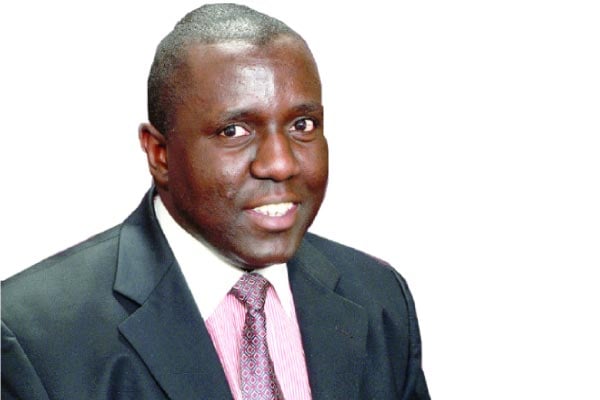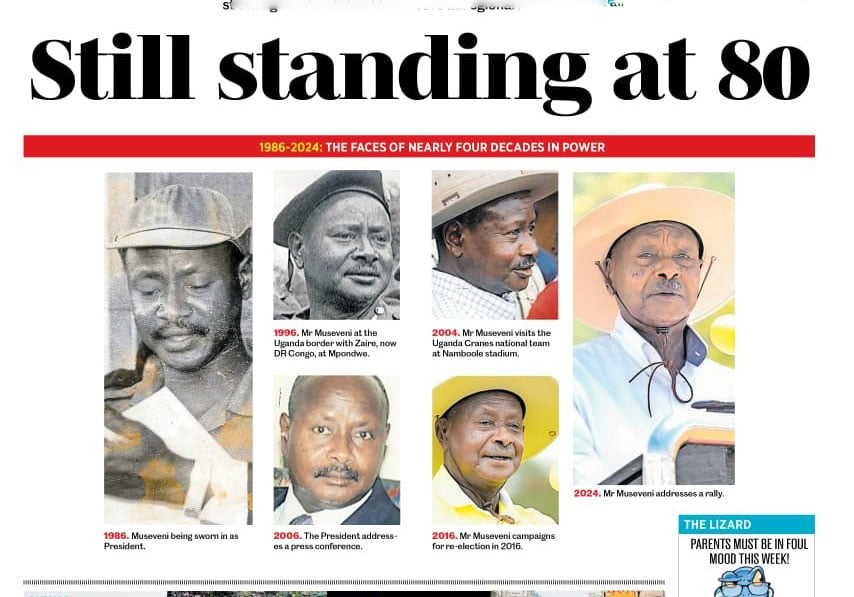Prime
Phasing out coffee development authority a big mistake – Mayiga

Katikkiro Mayiga addresses UCDA officials and other stakeholders at Bulange, Mengo, on Friday, September 6. PHOTO | MICHAEL AGABA
What you need to know:
- Mr Mayiga said while UCDA has been given a window to operate for three more years, its rationalisation after that will be a setback to efforts to promote coffee growing in the country
The Katikkiro (prime minister) of Buganda Kingdom, Mr Charles Peter Mayiga, has warned that the central government's plan to phase out the Uganda Coffee Development Authority (UCDA) will be its biggest mistake in recent times.
Mr Mayiga said while UCDA has been given a window to operate for three more years, its rationalisation after that will be a setback to efforts to promote coffee growing in the country.
“All of us have witnessed the advantages accrued to farmers and the ordinary citizens from UCDA. Therefore, all of us the citizens need to urge Parliament and the President to completely abandon the idea of phasing out UCDA,” he explained.
He made the remarks at Bulange, Mengo, on Friday while meeting officials from UCDA and other stakeholders about starting the registration of all coffee farmers in the country to comply with European Union exportation guidelines.
The European Union Deforestation Regulations (EUDR), which take effect at the start of 2025, stipulate that farmers must prove that their coffee has not been grown on land where deforestation has taken place.
According to Mr Mayiga, the need by the central government to ensure compliance with EU export laws makes the UCDA more relevant.
“These new regulations by the European Parliament underpin the importance of UCDA; who is going to engage with farmers and stakeholders to ensure compliance? the Ministry of Agriculture? I highly doubt; the mechanisms are not in place at all,” he said.
“But even before the EU regulations came into place; the issue of the quality of coffee, which affects the livelihoods of the ordinary person; even the quantity of coffee that was being produced; UCDA has been engaging the farmers and boosted production; the extension services they have been offering; actually UCDA needs more support in terms of finances to fulfil its mandate,” he added.
This comes after President Museveni early this week met with lawmakers on Parliament’s committees of Agriculture, National Economy and Finance from where it was resolved that UCDA and Dairy Development Authority (DDA) be merged with the Ministry of Agriculture. However, the merger of UCDA will be delayed for three years.
However, the Katikkiro said this is not fair to Ugandans
“I don’t even know the role of some of these industries that have been supported by the government as for the support to Uganda visa viz the role of coffee; you know them,” he said.
Mr Mayiga also pledged to rally coffee farmers in the kingdom to adhere to the registration exercise in compliance with the European Union Deforestation Regulation (EUDR). He emphasised that the registration exercise is crucial for farmers to access the European Union market, which offers better prices and enhanced market opportunities.
"The European Union's regulations for coffee exports are designed to protect the livelihoods of over 15 million Ugandans who depend on coffee. It is our collective responsibility - government, UCDA, and all stakeholders - to ensure compliance with these regulations, safeguarding the well-being of our farmers and the entire coffee industry,” the Katikkiro said.
"If we fail to meet the EU regulations, coffee prices might fall starting January 2025," Katikkiro Mayiga cautioned. "This would have devastating consequences for our farmers, who rely heavily on coffee for their livelihood,” he added.
Dr Gerald Kyalo, the director of Development Services at UCDA, said Uganda's coffee exports to the EU average 63 percent and that the legislation has a direct impact on the country's coffee trade.
The EUDR requires coffee exporters to submit detailed land-use maps, comply with local legislation, and provide a due diligence statement covering the entire coffee supply chain.
Dr Kyalo said Uganda has made significant progress in complying with the regulation, including setting up EUDR task force, engaging international partners, and developing an action plan.
The country is now in the final stages of rolling out a country-wide coffee value chain registration exercise, which will form the basis for coffee traceability.
“Enumerators will visit all coffee farms, recording the minimum set of data required for EUDR compliance verification, including geo-locations of coffee plots. To ensure the success of the registration exercise, we need the full cooperation of industry players and cultural, religious, administrative, and political leaders,” Dr Kyalo appealed.




